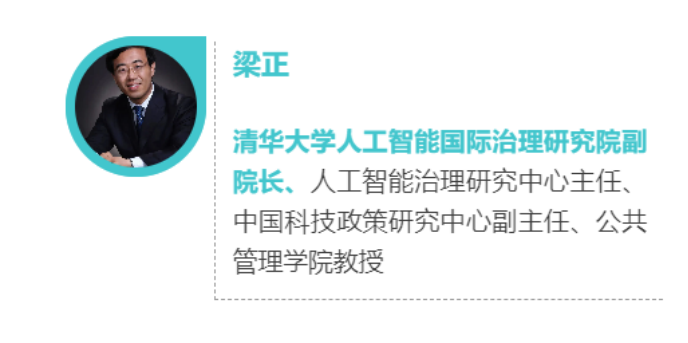点击蓝字
关注我们

专家观点:
清华大学中国科技政策研究中心副主任梁正在接受《科技日报》采访时也表示,《生成式人工智能服务管理暂行办法》反映了治理的变化,因为中国监管机构采用了一种较为灵活的方式来处理强大的生成式AI所带来的无法预料的影响。

A child visits the World Artificial Intelligence Conference (WAIC) in Shanghai on July 6, 2023. (PHOTO: VCG)
“
China’s Interim Measures for the Management of Generative Artificial Intelligence (AI) Services took effect on August 15.
CNN called it a “major step” and said China is becoming one of the first countries in the world to regulate generative AI.
With the rapid growth of powerful AI such as ChatGPT, its application has uncontrollable risks, for example, being used for fraudulent purposes, which may seriously infringe individual rights and harm the healthy development of industrialecology. Furthermore, it may pose a risk to national sovereignty.
Under such circumstances, the new measures will help generative AI develop in a more responsible way and avoid the subversive risks brought about by technological advancement, Yin Ximing, an assistant professor of innovation management from Beijing Institute of Technology, told Science and Technology Daily.
The 24 measures focus on striking a balance between healthy development and inclusive governance of generative AI, showing that China is taking an active and responsible attitude towards technology.
Some Western countries enact rules and laws based on punishment mechanisms or risk management. They would prefer strong supervision by clearly grading and classifying risks from the perspective of the regulator, said Yin.
However, instead of taking a one-size-fits-all approach, China has taken one that is more inclusive and prudential. On the one hand, the regulation similarly exercises classified and grading supervision on generative AI services.
On the other hand, the regulation adopts a registration system. This means that regulators do not restrict the innovation and development of generative AI, as long as companies and research institutions uphold the principles of trust and safety, said Yin, adding that it is in line with the development characteristics of AI, as the reform of the administrative systems and policies can not keep up with the continuously and rapidly upgrading technology. To some extent, this is also a signal showing that the regulatory authorities will push forward institutional innovation with new policy toolkits to cultivate the AI innovation ecosystem, Yin added.
“In my view, a registration system coupled with encouraging context-based AI innovation, represents an idea shift towards a service-oriented government,” said Yin, noting that, “The government will jointly work with generative AI service providers to cope with the challenges brought by new disruptive technologies and explore a new digital technology governance paradigm.”
Speaking to Science and Technology Daily, Liang Zheng, deputy director of China Institute for Science and Technology Policy at Tsinghua University, said he also thinks that the interim measures reflect the change of governance, as Chinese regulators adopt a more flexible method to deal with the unpredictable impact of powerful generative AI.
In fact, China’s action on AI regulation has also garnered global attention and praise. “The Chinese government has actually moved faster than the U.S. government in regulating AI, enacting regulations on deepfakes in January and publishing draft rules on generative AI in April,” Paul Scharre, vice president and director of studies at the Center for a New American Security, wrote in his article to Foreign Policy.
On the evidence, just as Yin said, China is shouldering its responsibility as a major power to provide a solution to generative AI, by both encouraging industrial development and protecting personal data privacy.
S&T Daily
Author:GONG Qian
关于我们
清华大学人工智能国际治理研究院(Institute for AI International Governance, Tsinghua University,THU I-AIIG)是2020年4月由清华大学成立的校级科研机构。依托清华大学在人工智能与国际治理方面的已有积累和跨学科优势,研究院面向人工智能国际治理重大理论问题及政策需求开展研究,致力于提升清华在该领域的全球学术影响力和政策引领作用,为中国积极参与人工智能国际治理提供智力支撑。
新浪微博:@清华大学人工智能国际治理研究院
微信视频号:THU-AIIG
Bilibili:清华大学AIIG
来源 | 本文转载自科技日报,点击“阅读原文”获取更多内容。



 ufabet
มีเกมให้เลือกเล่นมากมาย: เกมเดิมพันหลากหลาย ครบทุกค่ายดัง
ufabet
มีเกมให้เลือกเล่นมากมาย: เกมเดิมพันหลากหลาย ครบทุกค่ายดัง


